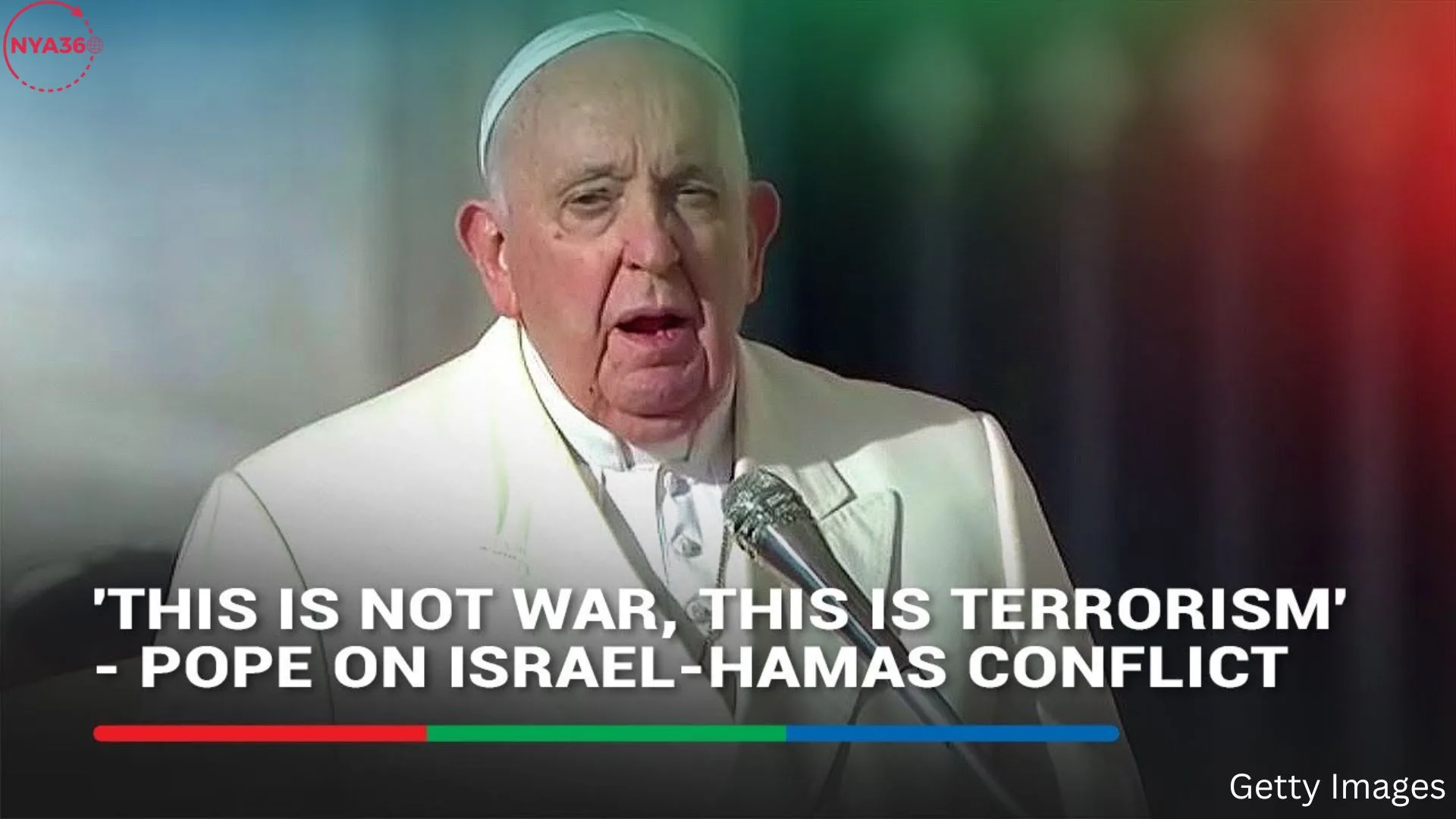Pope Francis, renowned for his unwavering positions on social justice and peace, recently garnered attention for denouncing the ongoing conflict between Israel and Gaza as “terrorism.” His comments have ignited a global discussion and brought attention to the mounting humanitarian disaster in the area. The Pope emphasized the distressing number of civilian casualties, specifically mentioning the tragic incident where Israeli snipers killed a woman and her daughter who were seeking refuge. This statement emphasizes a wider moral and ethical issue: the intentional focus and indiscriminate damage caused to civilians in conflict areas.
The Israel-Palestine conflict is a long-lasting and highly disputed geopolitical confrontation in recent history. The recent escalation in Gaza is a continuation of the long-standing conflict that involves territory issues, political sovereignty, and religious conflicts. Israel’s military actions in Gaza are often rationalized as attempts to neutralize Hamas, a militant organization that has been classified as a terrorist group by numerous Western nations. Nevertheless, the unintended harm caused by military operations has frequently prompted inquiries over the appropriateness and morality of the applied force, particularly when it disproportionately impacts non-combatants.
Pope Francis’ portrayal of the war as terrorism directs attention to the humanitarian dimensions, emphasizing the ethical obligation of all parties engaged in armed combat. The Pope’s message highlights the indiscriminate violence that frequently occurs in conflicts, specifically the death of people, including women and children. The Pope’s utilization of the term “terrorism” constitutes a clear condemnation of the tactics employed in armed conflict that lead to extensive harm to civilians, thereby establishing a moral comparison between the conduct of governments and the non-state entities they purport to combat.
The Pope’s speech goes beyond expressing worry; it represents a deep moral condemnation of the way contemporary conflicts are conducted. The deliberate targeting of civilians is strictly illegal under international law, including the Geneva Conventions. However, in Gaza, there is a distressingly frequent occurrence of reports regarding airstrikes, explosions, and sniper attacks targeting residential areas and unarmed civilians. This unfortunate event, in which a mother and her daughter were allegedly shot while trying to access a lavatory, highlights the susceptibility of people caught amid a conflict.

Within such contexts, the differentiation between individuals engaged in fighting and those not engaged becomes indistinct, resulting in what Pope Francis and other ethical authorities have characterized as a type of collective retribution. When heavily populated metropolitan areas are intensely bombarded, the resulting destruction cannot be easily classified as collateral damage; it is an expected consequence of employing excessive force in locations where civilians live. The Pope’s condemnation is to ensure that those who employ such strategies are held responsible, irrespective of the political or military rationale offered.
The ethical aspect of combat has been a topic of discussion for ages, but it becomes more pressing in the context of asymmetric battles such as the one between Israel and Gaza. During conventional wars, the main participants are typically uniformed soldiers who confront one other in specific areas specifically designed for fight. Nevertheless, in Gaza, where terrorist factions operate amidst civilian populations, the distinction between the two becomes indistinct. This hinders attempts to follow the norms of distinction and proportionality, fundamental foundations of just war theory.
Pope Francis’ statements can be understood as a direct challenge to the dominant rationale that rationalizes civilian losses as regrettable yet indispensable in the achievement of military goals. By categorizing the actions as “terrorism,” he challenges the ethical framework employed to justify such acts of violence. By doing this, the Pope positions himself in agreement with the increasing global consensus that aims to establish more responsibility for human rights abuses in areas affected by conflict. His position exemplifies a more comprehensive criticism of how power imbalances in asymmetric warfare can result in the dehumanization of entire people.
The Pope’s remarks have elicited diverse reactions from the international community. Advocates commend his steadfast dedication to peace and human dignity, perceiving his statements as a crucial moral intervention in a highly divided debate. Critics, especially those who support Israeli state interests, contend that his words oversimplify a multifaceted issue, disregarding the provocations and security concerns that have motivated Israel’s military actions.

Irrespective of an individual’s political position, Pope Francis’ engagement serves as a reminder to the world that conflicts should not be analyzed exclusively from the perspective of strategy and security. The humanitarian ramifications of war, particularly for individuals who cannot shape the course of events, should be the focal point of any discussion on conflict resolution. The Pope’s critique can be seen as an urging for a revitalization of endeavors aimed at diplomacy, dialogue, and harmonious cohabitation.
Pope Francis’ denunciation of Israel’s acts as terrorism serves as a potent reminder of the moral obligations that come with authority and military strength. The Pope emphasizes the universal idea that all lives hold significance, irrespective of nationality, religion, or political affiliation, by focusing on the suffering of civilians in his speech. Amid the ongoing battle, his statements inspire all the parties engaged, as well as the world community as a whole, to contemplate the ethical consequences of their actions and to strive for peaceful solutions that emphasize safeguarding innocent lives rather than pursuing military goals.
Follow us on social media: Instagram, Threads & Twitter X @nya360_ YouTube & Facebook @nya360.





